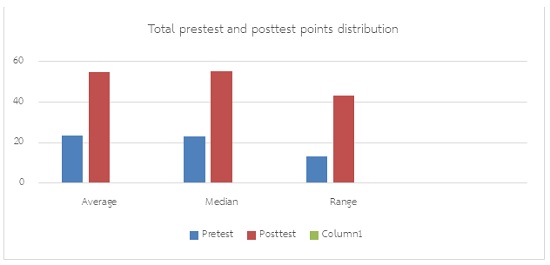EFFECTS OF GAME-BASED LEARNING ON 3RD GRADERS’ VOCABULARY ACHIEVEMENT
DOI:
https://doi.org/10.14456/nrru-rdi.2022.69คำสำคัญ:
การเรียนรู้ผ่านเกม, การเรียนรู้ผ่านสื่อเกมเรียนรู้, ความสำเร็จของคำศัพท์ภาษาอังกฤษ, แรงจูงใจของผู้เรียนบทคัดย่อ
ความสามารถของผู้เรียนในการสื่อสารที่มีประสิทธิภาพเป็นสิ่งสำคัญที่จะนำไปสู่ประสบความสำเร็จ ซึ่งขึ้นอยู่กับการเรียนรู้คำศัพท์ใหม่ของผู้เรียนโดยผ่านบทเรียนและกิจกรรมเสริมคำศัพท์ในประเทศไทยผู้เรียนต้องต่อเผชิญกับปัญหาการขาดการเรียนรู้หรือกิจกรรมการเรียนรู้เพื่อเสริมคำศัพท์ และเมื่อเกมสามารถเป็นส่วนหนึ่งของกิจกรรมการเรียนรู้ที่เลี่ยงไม่ได้ เกมจึงได้เปลี่ยนแปลงผลลัพธ์ด้านการจดจำคำศัพท์โดยเสริมการเรียนรู้ของผู้เรียนเน้นผู้เรียนเป็นศูนย์กลางมากขึ้น ดังนั้นเกมคอมพิวเตอร์ที่เสริมการเรียนรู้ จึงถือเป็นเครื่องมือที่มีประสิทธิภาพที่ส่งเสริมการมีส่วนร่วมและกระบวนการเรียนรู้ที่สนุกสนานของผู้เรียน ผู้เรียนที่ใช้เกมเพื่อการเรียนรู้มีแนวโน้มผลลัพธ์การเรียนรู้ที่ดีขึ้นในการบรรลุวัตถุประสงค์การเรียนรู้ด้านคำศัพท์ ดังนั้น วิธีการเรียนรู้จากเกมจึงถูกใช้ในงานวิจัยนี้ การศึกษานี้เป็นการวิจัยเชิงปริมาณ กำหนดกลุ่มตัวอย่าง 90 คน และเครื่องมือในงานวิจัยประกอบไปด้วยการทดสอบก่อนและหลังการเรียนรู้ แบบสอบถาม และแผนการสอน ซึ่งผ่านความเห็นชอบจากอาจารย์ที่ปรึกษาแล้ว รวมถึงการประเมินรายการคำศัพท์ภาษาอังกฤษ จำนวน 4 หัวข้อ ที่มาจากหลักสูตรและหนังสือเรียนภาษาอังกฤษของผู้เรียน การออกแบบแผนการสอนของหน่วยการเรียนรู้จำนวน 8 สัปดาห์ รวมทั้งหมด 12 ชั่วโมง เพื่อให้ผู้เรียนตรวจสอบผลการเรียนรู้และผลสัมฤทธิ์ของการเรียนคำศัพท์ ผลของการใช้เกมในการเรียนรู้คำศัพท์ แบบประเมินความพึงพอใจสถิติที่ใช้ในการวิเคราะห์ข้อมูลคือ ค่าเฉลี่ย ส่วนเบี่ยงเบนมาตรฐาน และการทดสอบค่าเฉลี่ยความแตกต่างของผลสัมฤทธิ์ทางการเรียนก่อนเรียนและหลังเรียน (t-test แบบ dependent samples) ผลงานวิจัยเผยว่าเกมมีประสิทธิภาพในการเพิ่มผลสัมฤทธิ์ทางการเรียนคำศัพท์ภาษาอังกฤษของนักเรียนชั้นประถมศึกษาปีที่ 3 นอกจากนี้ยังให้ข้อมูลที่น่าสนใจเกี่ยวกับเกมต่าง ๆ ว่าเกมได้รับความนิยมเพื่อส่งเสริมการเรียนรู้คำศัพท์ที่หลากหลายได้อย่างมีประสิทธิภาพ
เอกสารอ้างอิง
Abdul R. N. S., & Talib, Z. (2017). The Effects of Digital Game-Based Learning on Primary School Students’ English Vocabulary Achievement and Acceptance. Innovative Teaching and Learning Journal, 1, 61-74.
Becker, K. (2016). Choosing and using digital games in the classroom: A practical guide. Cham : Springer International.
Kathinthong, C., & Adipat, S. (2022). The Development of Vocabulary Learning Using Game Based Learning for Grade 13 Students. Journal of Modern Learning Development, 7(4), 320-332. Retrieved June 1, 2022, from https://so06.tcithaijo.org/index.php/jomld/article/view/254859/172765 (In Thai)
Khan, R. M. I., Radzuan, N. R. M., Shahbaz, M., Ibrahim, A. H, & Mustafa, G. (2018). The Role of Vocabulary Knowledge in Speaking Development of Saudi EFL Learners. DOI: https://dx.doi.org/10.24093/awej/vol9no1.28
Minor, C. E., Desimone, L., Caines Lee, J., & Hochberg, E. D. (2016). Insights on how to shape teacher learning policy: The role of teacher content knowledge in explaining differential effects of professional development. Education Policy Analysis Archives, 24, 61. https://doi.org/10.14507/epaa.24.2365
Noom-ura, S. (2013). English-Teaching Problems in Thailand and Thai Teachers’ Professional Development Needs. PathumThani : Thammasat University press. (In Thai)
Papadakis, S. (2018). The use of computer games in a classroom environment. International Journal of Teaching and Case Studies, 9(1). 10.1504/IJTCS.2018.10011113 (In Thai)
Puttimanoradeekul, P., & Phongsatha, S. (2019) Implementing English Game-Based Learning Applications in Classrooms to improve Primary School Students’ English Vocabulary Skills. Academic Journal Rajabhat Phranakhon University, 10(1), 143-161. (In Thai)
Reem, A., & James, M. (2020). Investigating the Relationship between Vocabulary Knowledge and Academic Success of Arabic Undergraduate Learners in Swansea University. Language in Focus, 2, 88-124.
Rodkroh, P., Suwannatthachote, P., & Kaemkate, W. (2019). Effects of Using Problem-Based Learning Digital Game on Problem-Solving ability for Science subject of Primary Students. Veridian E-Journal, Silpakorn University (Humanities, Social Sciences and arts), 12(5), 762-777. (In Thai)
Rovinelli, R. J., & Hambleton, R. K. (1976). On the use of content specialists in the assessment of criterion-referenced test item validity. Paper presented at the annual meeting of the American Educational Research Association : California (April 19-23, 1976). Retrieved June 16, 2021, from https://files.eric.ed.gov/fultlext/ED121845.pdf
Taghizadeh, M., Vaezi, S., & Ravan, M. (2017). Digital Games, Songs and Flashcards and their Effects on Vocabulary Knowledge of Iranian Preschoolers. Studies, 5(4), 156-171.
Vodenicharova, M. (2022) Gamed-based Learning in Higher Education. TEM Journal, 11(2), 779-790. DOI: 10.18421/TEM112-35

ดาวน์โหลด
เผยแพร่แล้ว
รูปแบบการอ้างอิง
ฉบับ
ประเภทบทความ
สัญญาอนุญาต

อนุญาตภายใต้เงื่อนไข Creative Commons Attribution-NonCommercial-NoDerivatives 4.0 International License.




